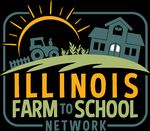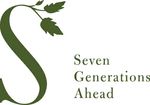Webinar on thethe Food Waste Reduction Toolkit for Illinois Schools - Seven ...
←
→
Page content transcription
If your browser does not render page correctly, please read the page content below
The Zero Waste Schools newsletter will help you get your school
on a path toward generating zero waste through waste prevention, recycling, composting,
and food recovery. You’ll also find resources that connect zero waste to healthy eating,
school gardens, and environmental education and action.
Share the newsletter with friends, colleagues, and students interested in zero waste.
Sign up for ZWS news
Webinar on the
Food Waste Reduction Toolkit for Illinois Schools
July 27, 12 pm CST
Interested in reducing school food waste?
Join this webinar to learn how!
The Food Waste Reduction Toolkit for Illinois Schools
is a comprehensive resource that identifies the main
sources of wasted food and offers strategies for food
waste prevention, food recovery and redistribution,
composting, education and engagement, and
celebrating success. The Toolkit's numerous case
studies provide examples of these strategies in action.
Susan Casey & Becky Brodsky from SGA's Zero
Waste Schools program will provide an overview of the
food waste reduction strategies in the Toolkit.
You'll also hear from these inspiring case study
contributors:
Lauren Roberts, Gourmet Gorilla, will highlight
the Chicago-based school food service company's food waste tracking system
which has led to a 10-15% waste reduction in serving lines.
Greta Kringle, Science Teacher, Solorio Academy High School , will share how
she integrated zero waste thinking and food waste reduction into her chemistry
curriculum and how it became a focus for the Zero Waste Ambassadors Club at this
Chicago Public School.
Now is the time to plan how your school can reduce food waste to benefit your students,
your community, and the planet.
Click HERE to register for the webinar. Download a pdf of the Toolkit HERE.
The Food Waste Reduction Toolkit for Illinois Schools is a project of the Wasted Food Action
Alliance and was developed by SGA in collaboration with partners from the Wasted Food ActionAlliance.
Plastic Free July
Celebrate Plastic Free July, the global movement that
helps millions of people be part of the solution to plastic
pollution. Here are just a few ways you can started on a
plastic free life:
Support the Break Free From Plastic Pollution Act
Get started early on planning a Plastic Free Lunch Day for your school
Join the "Reopen with Reuse" campaign
Support Let’s Shedd Plastic restaurants
Organize or join a litter clean-up at a beach, park, river, or in your neighborhood
(tongs and gloves make it easier and safer)
Join the Plastic Free Eco-Challenge, the month-long challenge that will help
participants move away from their dependency on single-use plastics
Join these webinars organized by the Shedd Aquarium for Plastic Free July:
July 15 at noon: Clean Composting for a Better Future
July 21 at noon: Let’s Shedd Plastic with Chicago Restaurants
July 21 at 6pm: Conservando Nuestro Raices: Celebrating Our Zero
Waste Roots
July 28 at noon: Policy Change for a Plastic-Free Future
Ditching Disposables:
A
Toolkit for Healthier Foodware in K-12 Schools
The Center for Environmental Health recently
released Ditching Disposables: A Toolkit for
Healthier Foodware in K-12 Schools to help
school districts address the growing amount of
disposables in their schools, the toxic chemicals
found in these products, and the impacts that they
have on our health and environment.
The toolkit is designed to guide K-12 schools in
making the transition from single-use food service
ware to healthier, more sustainable alternatives. Highlights include:
Purchasing options, including general product pricing information
Case studies of schools that have transitioned to reusables or are on their way
Information regarding the toxicity of various food service ware material types
Dishwashing equipment suggestions
Illinois Farm to School Summer Institute
The 2021 virtual institute opened on June 1 and is available
through August 15. At no cost, participants can discover tools,
review resources, and receive training on the topics needed to
move their programming forward. Attendees will build a
personalized agenda from over 100 documents and toolkits, 28
pre-recorded virtual sessions, and shared links to best practices
for 18 Farm to School topics, many often overlooked by
participating programs.Please share this fantastic opportunity with child garden and feeding sites in your
region! Check out a sample of farm to school training sessions HERE and click
this LINK to read more.
Do you know an Illinois grower, distributor, or food hub that would like to share their
information with institutional buyers? Help them build their market by sharing the Local
Food Poster application for the Local Food Gallery wall HERE.
Students eat more, waste less with longer lunch time
While schools might schedule 20-minute lunch periods, the
amount of time students are actually seated and able to eat is
often much shorter.
Effects of Longer Seated Lunch Time on Food Consumption
and Waste in Elementary and Middle School–age Children, a
recently published study by researchers at the University of Illinois
at Urbana-Champaign, concludes that policies requiring 20
minutes of seated lunch time result in increased fruit and
vegetable consumption and decreased waste during lunch.
The authors conclude that the results "support a 20-minute seated
lunch policy, which could improve diet quality and reduce food
waste in children." They also note that while health experts
recommend at least 20 minutes of seated lunch time, "no federal
policy for lunch period duration exists in the United States."
Photo: Seven Generations Ahead
How Schools Can Use Federal COVID Relief Funds to Ensure
Healthy, Green Schools
The Center for Green Schools and UndauntedK12 have
released Five Guiding Principles: How Schools Can Use
Federal COVID Relief Funds to Ensure Healthy, Green
Schools, which provides actionable information for school
districts as they consider how to use these relief funds to
meet local needs. The resource identifies examples of
school facility improvements, as well as curriculum and
training that both align with allowed uses and provide long-
term benefits.
A virtual training on July 22 at 1pm CST will address how to
navigate the COVID-19 relief funding policy language,
understand who in the state/district is responsible for setting
expectations on funding, and how best to leverage the funds
for sustainability efforts in order to further healthy, green
school goals. This training is intended for advocates both within and outside of school
districts. Register HERE.
New report makes policy recommendations for reducing school
food waste
In order to help meet our national goal of reducing food
waste by 50% by 2030, the Harvard Law School Food Law
and Policy Clinic, in collaboration with ReFED and the
Natural Resources Defense Council, recently published a
new report, Leveraging Child Nutrition Reauthorization
to Reduce Food Waste.The report makes policy recommendations that Congress
can implement as part of the Child Nutrition
Reauthorization (CNR) process to address food waste in
federal child nutrition programs and food waste generated
at home. The report outlines 14 recommendations for the
CNR in total, with the following five recommendations for
school meals:
1. Incentivize school food waste audits
2. Mandate an Offer Versus Serve model across more levels of the school system
3. Authorize financial incentives to schools that register with the EPA Food Recovery
Challenge
4. Offer grant funding to schools to implement food waste reduction and recovery
programs
5. Modify existing school grant program selection processes to preference applicants
that have food waste reduction or food donation plans
Photo: Seven Generations Ahead
Grants and other opportunities
World Wildlife Fund's Food Waste Warriors mini-grants and large grants are now
open. Two types of grants are available this year: (1) mini-grants for schools, school
districts, or nonprofits; and (2) large grants for school districts, nonprofits, and for-profit
organizations. The focus will be on food waste measurement and interventions; supporting
underserved communities; and (for the large grants only) helping to drive more lasting
food waste policy change in schools. Applications due July 20.
Driving a Cleaner Illinois (grants for all-electric school buses): The Illinois EPA is
currently accepting applications to replace old diesel school buses with new all-electric
school buses through its Driving a Cleaner Illinois grant program. Grants are available in
the Chicago Metro and Metro-East areas. Applications due August 9, 2021.
USDA Urban Agriculture and Innovative Production Grants: Applications are open for
grants that support the development of urban agriculture and innovative production that
initiate or expand the efforts of farmers, gardeners, citizens, government officials, schools,
and other stakeholders in urban and suburban areas. Projects may target areas of food
access, education, business and start-up costs for new farmers, urban agroforestry or
food forests, and development of policies related to zoning and other needs of urban
production. Applications due July 30, 2021.
'Beyond Plastic Pollution' online class: Registration is now open for the fall session of
this environmental policy class offered by Bennington College. The course is open to the
public, high school age and up. Class meets every Wednesday on Zoom, Sept. 1 - Oct.
13, 2021, 7-9 pm. The fee to audit the class is $100; the cost is $400 to receive credit.
Events
Chicagoland Regional Climate Action Plan Launch
July 13, 12-1:30 pm
Attend this online event to learn about one of the first regional climate plans in the United States that will
help municipalities make impactful changes in their own operations and encourage policies that will
reduce greenhouse emissions and build resilient communities.
2021 Midwest Environmental Education Conference
July 26-29, Luther College, Decorah, Iowa
This year's theme, Exploring Community: Land, Water, People, focuses on re-defining community to
include all land, water, and people, and building healthy, resilient, vibrant communities for all.
Seven Generations Ahead | Email | Website
This newsletter was created by Seven Generations Ahead.
Funding for Zero Waste Schools is provided by Peoples Gas, North Shore Gas, and
Food:Land:Opportunity, a collaboration between Kinship Foundation and The Chicago Community
Trust and funded through the Searle Funds at The Chicago Community Trust.You can also read



























































